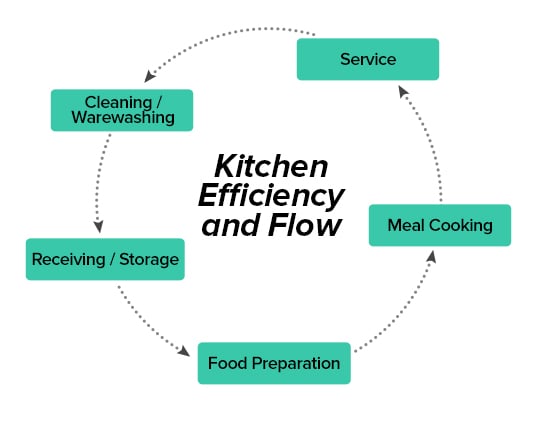Hospital Food Services Operations Manual
- State Operation Manual Hospital
- Company Operations Manual
- Hospital Food Service Operations Manual Template
What are they and does my food establishment need them? Foodservice Industry standard operating procedures (SOPs) are written practices and procedures of how your establishment will produce safe food. SOPs are a key component to your overall food safety program. SOPs include specific details of how a policy will be implemented including:. Who will perform the task. What materials are needed. Where the task will be done.
When the task will be performed. And how the person will do the task. You may be thinking that your establishment is too small or that you’ve always gotten by without written procedures, so why would you need them now?
The benefit of SOPs The benefit of SOPs to your establishment, whatever the size, is that processes are standardized with step-by-step, how-to instructions that help anyone within your operation do the task in a consistent way. The SOPs provide step-by-step written procedure to help employees perform their job and keep them accountable because of documented expectations. If your goal is to consistently provide safe, high quality foods and services to your customers, SOPs will help you achieve this goal. Creating SOPs You might be wondering where you would start to create SOPs for your operation.
If it sounds like an overwhelming project it doesn’t have to be. There are resources available to get you going. The following are from Iowa State University Food Safety Project and will provide you with solid guidance in developing your SOPs. There may be areas that are specific to Iowa Food Code so remember to go.
Here are resources for a variety of types of foodservice operations:. Developing SOPs for your operation Here’s how you do it. Operation specific SOPs can be created by modifying one of the examples from the links provided or by simply writing down the steps taken when performing specific tasks in your operation. Think about the areas in your operation where SOPs are needed.
Start with the areas which you currently spend the most time communicating about (i.e. SOPs implementation When you reach the step of implementation, conduct an employee in-service to share the information and have it available for employee review. SOPs will be useful for training new hires, refreshers and updates for all employees, and a way to insure that all employees are doing their jobs in a consistent way.
You will want to do an annual review of the SOPs and update them as needed (i.e. New equipment, Food Code changes). Sample SOPs for handwashing Policy All food preparation and service personnel will follow proper handwashing practices to ensure the safety of food served to customers. Procedure All employees in foodservice should wash hands using the following steps:. Wash hands (including under the fingernails) and forearms vigorously and thoroughly with soap and warm water (a temperature of at least 100°F is required) for a period of 20 seconds.
State Operation Manual Hospital
Wash hands using soap from a dispenser. Use a sanitary nail brush to remove dirt from under fingernails. Wash between fingers thoroughly.

Use only hand sinks designated for that purpose. Do not wash hands in sinks in production area.

Dry hands with single use towels or a mechanical hot dryer. Turn off faucets using a paper towel, in order to prevent recontamination of clean hands if foot pedals are not available.
The foodservice manager will. Monitor all employees to ensure that they are following proper procedures. Ensure adequate supplies are available for proper handwashing. Follow up and retrain as necessary.
Company Operations Manual
Books.google.co.th - Dietetics educators and practitioners will find much in these pages to challenge them. As integrated health care systems evolve, For better or for worse, dietitians need to develop the skills and attitudes that will facilitate not just survival but also expansion of the profession.Journal of the American.
Hospital Food Service Operations Manual Template
Nutrition and Food Services for Integrated Health Care.
Top Articles
- ✔ Ktm 450 Exc Manual 06
- ✔ Toshiba E Studio 195 Manual
- ✔ Ford Lynx Engine Manual
- ✔ Yardworks Log Splitter Manual
- ✔ Pearson Drug Guide 2013
- ✔ Repair Manual Saab 9 3 2016
- ✔ Guns For General Washington Teaching Guide
- ✔ Residential Plumbing Guide
- ✔ Australian Key Blank Conversion Guide
- ✔ 2004 Ez Go Txt Golf Cart Manual
- ✔ Yamaha Yz450 Service Repair Manual
- ✔ Fundamentals Of Electrical Engineering Stanley Solution Manual
- ✔ Review For Mastery Workbook Teacher Guide